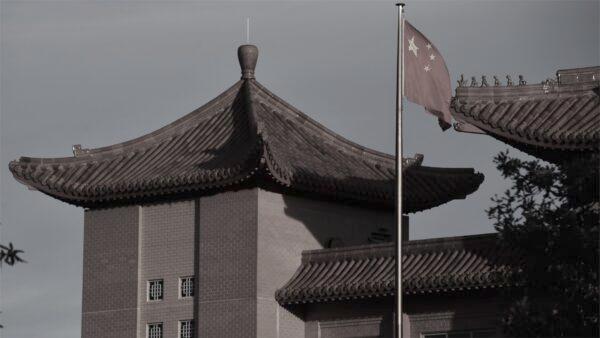Australian Defence Minister Peter Dutton has said the opposition Australian Labor Party (ALP) needs “greater awareness” about who it engages with after the country’s domestic spy agency, ASIO, foiled a Beijing-backed plot to install Manchurian Labor candidates from New South Wales (NSW) in this year’s federal election.
ASIO Director-General Mike Burgess revealed details about the disrupted plot on Feb. 9, at his annual threat assessment speech, saying an unnamed foreign government conspired to bankroll electoral candidates thought to be pliable or who might already support the interfering foreign power. The political candidates targeted in the plot were unaware of the scheme, he said.
The revelations led Dutton to declare, during Question Time in parliament on Feb. 10, that the foreign power was the Chinese regime, and he alleged they had “picked” national Labor Opposition Leader Anthony Albanese as “their candidate” for prime minister.
Next came a report from The Sydney Morning Herald and The Age on Feb. 11, citing “multiple” of their own anonymous security and intelligence sources who pointed the finger at the Chinese regime for the plot.
Their report claimed that both Prime Minister Scott Morrison and Albanese had been briefed on the conspiracy by ASIO. The offices of Morrison and Albanese did not immediately respond to a request for confirmation on these claims.
NSW Labor General Secretary Bob Nanva then denied any knowledge of the alleged plot.
“NSW Labor can confirm that no national security agency has ever raised these alleged matters with the parliamentary leadership or the organisational wing of the NSW Branch,” Nanva wrote in a statement published on Twitter on Feb. 11.

Meanwhile, Albanese told the Australian Broadcasting Corporation the potential candidates who had been targeted by the Chinese Communist Party (CCP) were ultimately not preselected by Labor.
Further, Albanese said he had spoken to Burgess on Feb. 11, who Albanese said had “reaffirmed” that he “has not raised concerns about any of my candidates” in the federal election—which has not yet been called.
Dutton doubled down the next day on his assertion that the CCP backed a Labor government, saying: “I think there’s no doubt that there are elements within the [Chinese] Communist Party that would be very happy to see the back of our government.”
The CCP has sought to punish Australia after the Morrison government called for an international inquiry into the origins of the SARS-CoV-2 virus, which came on the back of Australia moving to protect its national interests in the face of Beijing’s ambitions to replace the United States as the dominant power in the region.
The Chinese embassy in Canberra also leaked a 14-point list of grievances against the Australian government to a journalist and demanded that Australia back down on those issues before Beijing would return relations to normal.
The list of grievances included: government funding for the Australian Strategic Policy Institute, raids on Chinese journalists, academic visa cancellations, and Australia’s participation in multilateral forums on China’s affairs in Taiwan, Hong Kong, and Xinjiang—which the regime claimed that Australia was “spearheading.”

Speaking to the ABC, Albanese hit back after Dutton’s comments, describing them as “desperate politics.”
“I have had a consistent position over a long period of time but I am not going to sit back and cop the sort of nonsense that is being put forward from a government that sat back while the Port of Darwin was sold to interests of a company directly engaged with, and connected to, the government of the People’s Republic of China,” he said.
Albanese’s comments come after Dutton had earlier told ABC Radio National that Albanese doesn’t want to be discussing China or national security in the lead up to the election.
“He wants to neutralise the issue and doesn’t want to talk about the issue at all,” he said.
Dutton reiterated that Chinese interference in Australia and around the world was well-documented, and include instances of editorials written in pro-Beijing Chinese language newspapers, and targeting people on WeChat who spoke out against the CCP.
“The U.S., at the moment, has 12,000 cases [of foreign interference by China] under investigation [by the FBI]. ASIO will be looking at matters themselves of [political] interference in Australia.
“I just think it’s uncontroversial in the sense that that is the modern reality and we should be alive to it,” he said.





